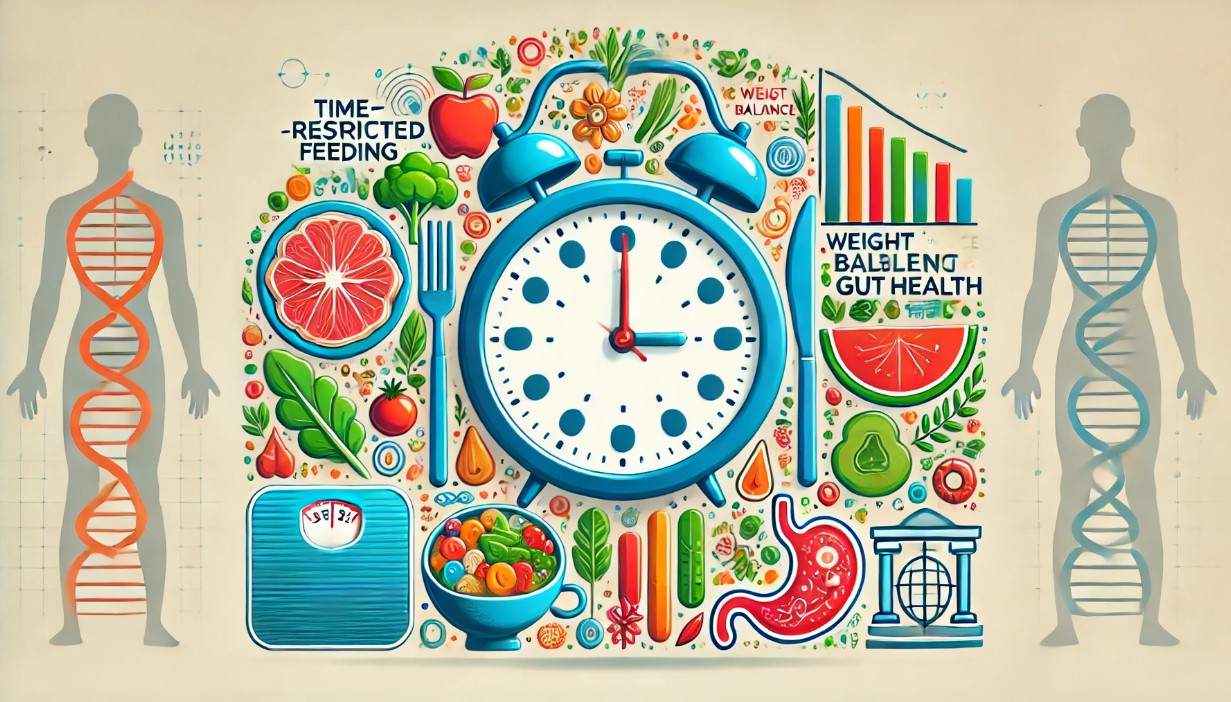
Time-Restricted Feeding: Boost Weight Balance & Gut Health
Time-Restricted Feeding (TRF) refers to the practice of abstaining from eating for a specified period regularly. Researchers have found that this feeding pattern helps restore the daily balance of the gut microbiome, which may be disrupted due to a high-fat diet and unrestricted access to food. This involves regularly spacing at least 12 hours between two consecutive meals. TRF is beneficial for individuals seeking to improve their metabolism and overall health. Typically, these fasting intervals for weight reduction can extend up to 14 to 16 hours per day. Another type of TRF is known as “intermittent fasting” or the 5:2 diet, where eating is restricted to only two days a week. The 4:3 diet, or “alternate-day fasting,” is another method where dietary restrictions are applied on alternate days.
Benefits of Time-Restricted Feeding
Time-Restricted Feeding helps maintain the daily balance of the gut microbiome and body weight. This dietary regimen regulates the gut microbiome’s oscillations, the rhythm of circadian genes, bile acid signaling, and the level of glucagon-like peptide 1. These adjustments are vital for maintaining the gut’s natural circadian rhythms, helping prevent disruptions from Diet-Induced Obesity (DIO). While this dietary approach and feeding pattern preserve the gut’s circadian rhythm and protect against DIO, its impact on the dynamics of the cecum’s microbiome is minimal.
Impact of Time-Restricted Feeding on Gut Microbiome Composition
Researchers have demonstrated the effect of Time-Restricted Feeding on the composition of the gut microbiome and transcription in mice. The dynamic patterns of gut microbiome composition and transcription decrease in obesity resulting from a diet. To examine the effects of TRF on the host’s circadian rhythmicity, researchers collected intestinal samples from laboratory mice. This study found that this feeding regimen improves body weight despite an isocaloric diet. It also enhances blood glucose levels compared to Diet-Induced Obesity (DIO). Visit the Teogene website for the latest health insights.
